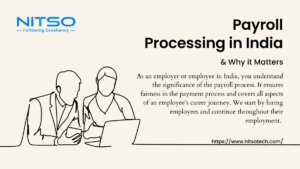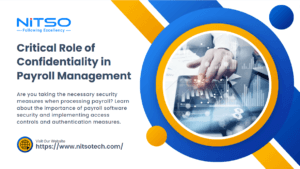Effective planning of corporate events offers businesses the opportunity to expand their network base, boost brand recognition and exchange knowledge with professionals within the industry. Nevertheless, organizing an exemplary occasion involves dealing with various challenges that confront individuals responsible for making it happen. In this piece of writing, we explore some common setbacks typically encountered in corporate event management while providing practical solutions that work effectively in tackling them.
Table of Contents
What is Corporate Event Management?
Corporate event management refers to the process of planning, organizing, and executing events for businesses and organizations. These events are specifically designed to meet corporate objectives, such as promoting a brand, fostering networking opportunities, launching products, training employees, or celebrating company milestones.
Corporate events come in many shapes and sizes- from intimate meetings to large-scale conferences such as trade shows or exhibitions. The main goal of exceptional event management is not just delivery but rather creating an unforgettable experience for attendees that thoughtfully blends with effective communication of planned messaging while proving fruitful outcomes.
What are the task involved in Corporate event management?
Corporate event management involves a wide range of tasks, including:
- Event Planning: Defining event objectives, determining the target audience, selecting event format and theme, setting a budget, and creating a comprehensive event plan.
- Venue Selection: Identifying suitable venues that can accommodate the event requirements in terms of capacity, location, facilities, and ambience.
- Logistics and Operations: Managing event logistics, including transportation, accommodation, registration, security, and technical requirements.
- Vendor Management: Collaborating with vendors and suppliers for services such as catering, audio-visual equipment, decor, entertainment, and promotional materials.
- Program Development: Designing event programs, scheduling sessions, securing keynote speakers or presenters, and coordinating content creation.
- Marketing and Promotion: Develop marketing strategies to generate awareness and attract attendees, utilizing various channels such as social media, email marketing, and traditional advertising.
- Budgeting and Financial Management: Creating a budget, tracking expenses, negotiating contracts, and ensuring financial accountability.
- On-site Coordination: Overseeing all aspects of the event during its execution, managing event staff, coordinating with vendors, and handling any unforeseen issues or emergencies.
- Post-Event Evaluation: Collect feedback from attendees, assessing the event’s success based on predefined metrics, and identifying areas for improvement.
Effective corporate event management requires strong organizational and communication skills, attention to detail, creativity, problem-solving abilities, and the ability to work under pressure. Event planners and professionals in this field play a crucial role in ensuring the seamless execution of corporate events that meet the objectives and leave a lasting positive impression on attendees.
Article you might be intrested in: The Basics of Asset Management
What Are Some Common Challenges Faced in Corporate Event Management?
Corporate event management presents several challenges that event planners commonly encounter. Here are some of the most common challenges:
- Tight Budgets: Working with limited budgets is a constant challenge in corporate event management. Event planners often face the pressure of delivering exceptional events while managing costs effectively.
- Time Management: Time management is crucial in event planning, as there are numerous tasks and deadlines to meet. Event planners must effectively manage their time to ensure all aspects of the event are planned and executed on schedule.
- Vendor Selection and Coordination: Choosing the right vendors, such as caterers, audio-visual providers, and decorators, can be challenging. Coordinating with multiple vendors and ensuring their deliverables align with the event’s requirements requires efficient communication and management.
- Technical Glitches: Technology plays a vital role in modern corporate events. However, technical glitches, such as audio or visual malfunctions, internet connectivity issues, or software failures, can disrupt the event flow and negatively impact the attendee experience.
- Attendee Engagement: Engaging attendees and keeping them actively involved throughout the event is a challenge. Event planners need to create a program that is compelling, interactive, and relevant to the audience, fostering engagement and participation.
- Logistics and Operations: Managing event logistics, including transportation, accommodation, registration, security, and venue setup, can be complex and time-consuming. Coordinating these logistics effectively is crucial to ensure a smooth event experience.
- Last-Minute Changes: Changes in event details or unexpected circumstances can occur at any time. Event planners need to be adaptable and have contingency plans in place to handle any last-minute changes effectively.
- Communication and Coordination: Effective communication among the event planning team, vendors, stakeholders, and attendees is essential. Coordinating multiple parties and ensuring everyone is informed and on the same page can be a challenge, particularly for large-scale events.
- Risk Management: Events come with inherent risks, such as safety concerns, legal compliance, or unforeseen incidents. Event planners need to proactively identify and mitigate potential risks to ensure the safety and well-being of attendees and the success of the event.
- Post-Event Evaluation: Evaluating the success of an event and gathering feedback from attendees can be challenging. Obtaining comprehensive feedback and analyzing data to identify areas of improvement for future events requires a structured approach.
By understanding these common challenges and implementing effective strategies, event planners can navigate these obstacles and deliver successful corporate events that meet the objectives and exceed attendees expectations.
How Can These Challenges Be Overcome?
Overcoming the challenges faced in corporate event management requires careful planning, effective strategies, and proactive problem-solving. Here are some approaches to overcome these challenges:
1. Tight Budgets
- Prioritize expenses based on their impact on the event’s objectives.
- Negotiate with vendors and suppliers for better pricing and discounts.
- Explore cost-effective alternatives without compromising the event quality.
- Seek sponsorships or partnerships with relevant businesses to secure additional funding.
2. Time Management
- Create a detailed project plan with specific deadlines for each task.
- Delegate responsibilities to a competent team and foster effective communication.
- Utilize event management software or tools to streamline processes and track progress.
- Anticipate potential delays or bottlenecks and have contingency plans in place.
3. Vendor Selection and Coordination
- Conduct thorough research and seek recommendations when selecting vendors.
- Clearly communicate your expectations and event requirements to potential vendors.
- Request and evaluate detailed proposals, considering factors like experience, reliability, and pricing.
- Maintain regular communication with vendors, providing updates and addressing any concerns promptly.
4. Technical Glitches
- Conduct thorough testing of all audio-visual equipment and technology systems before the event.
- Have backup equipment and technicians on standby to address any technical issues promptly.
- Hire experienced audio-visual professionals who can troubleshoot problems effectively.
- Provide clear instructions and training to speakers and presenters on using technical equipment.
5. Attendee Engagement
- Incorporate interactive elements such as live polls, Q&A sessions, or gamification.
- Offer networking opportunities to encourage meaningful connections among attendees.
- Provide relevant and engaging content that aligns with the event’s objectives and target audience.
- Leverage social media and event apps to foster pre-event and post-event engagement.
6. Logistics and Operations
- Create a comprehensive logistics plan, including transportation, accommodation, registration, and venue setup.
- Utilize event management software or tools to streamline logistics processes and track progress.
- Maintain open communication with all stakeholders involved in logistics to ensure smooth coordination.
7. Last-Minute Changes
- Have contingency plans in place for various scenarios and unexpected changes.
- Maintain clear communication channels with all stakeholders to quickly disseminate information about changes.
- Be adaptable and flexible in adjusting plans and resources to accommodate last-minute changes.
8. Communication and Coordination
- Establish effective communication channels, such as regular meetings, emails, or project management tools.
- Clearly define roles and responsibilities for each team member and vendor involved.
- Utilize technology, such as collaboration tools or event management software, for efficient communication and coordination.
9. Risk Management
- Identify potential risks and develop a comprehensive risk management plan.
- Implement safety measures, such as crowd control, emergency procedures, and proper event insurance coverage.
- Regularly assess and address risks during the planning and execution phases of the event.
10. Post-Event Evaluation
- Develop a structured feedback collection process, such as surveys or post-event interviews.
- Analyze attendee feedback and event data to identify strengths and areas for improvement.
- Use the insights gained to refine future event planning processes and enhance attendee experiences.
By implementing these strategies, event planners can effectively navigate the challenges and ensure the success of corporate events while meeting objectives and exceeding attendee expectations.
Conclusion
Corporate event management comes with its fair share of challenges, but with careful planning and effective strategies, these challenges can be overcome. By addressing budget constraints, managing time effectively, selecting reliable vendors, mitigating technical glitches, and prioritizing attendee engagement, event planners can create successful and memorable corporate events. There are several excellent corporate event management software options available, each offering unique features and capabilities some of the best are Cvent, Eventbrite, and Bizzabo. By understanding and proactively addressing these challenges, event planners can ensure successful corporate event management.








0 Comments